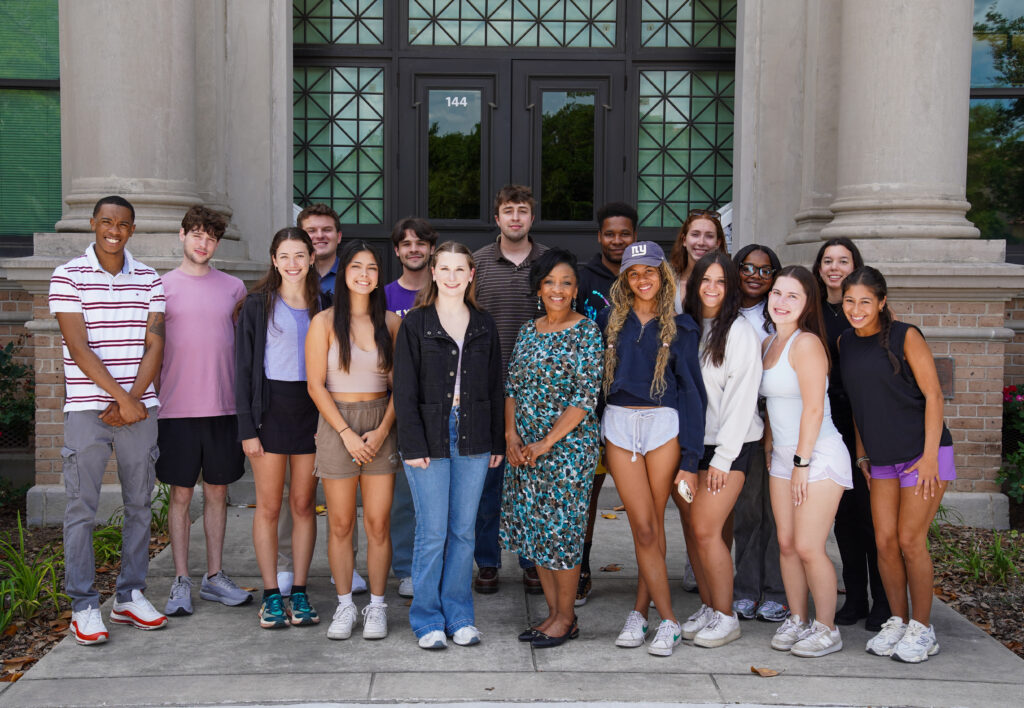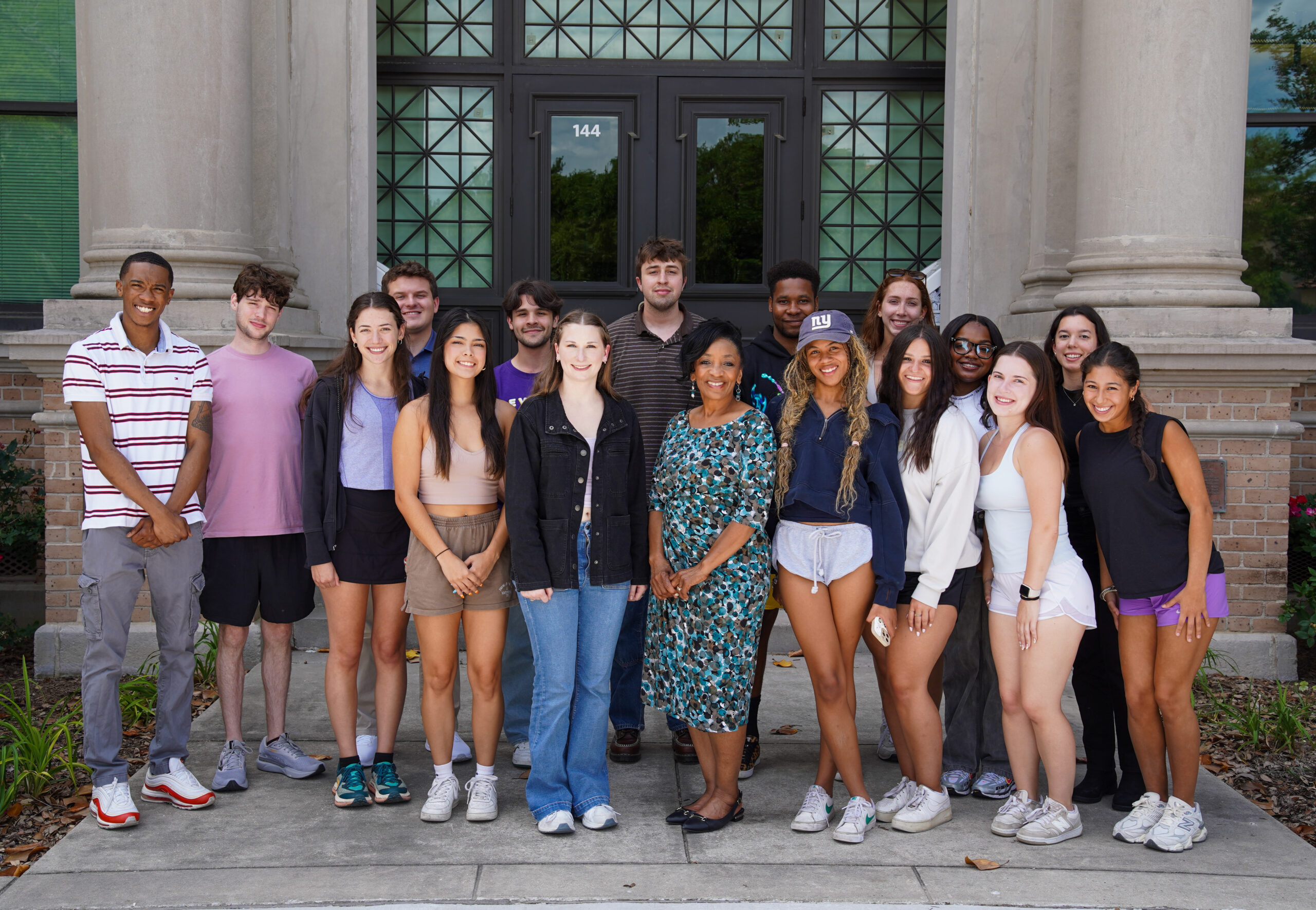I was a Louisiana transplant, working as a journalist in the nation’s capital in late August 2005, when Hurricane Katrina nearly destroyed the city that I love. I longed for home.
The reporter in me wanted to be in New Orleans, covering the heartbreaking disaster with my former co-workers of The Times-Picayune, where I’d spent the first 10 years of my career, mostly as a reporter and then a Metro Page columnist. But as a mom of two toddlers and a preschooler (ages two, three and four) with no close relatives in town, I knew that leaving them indefinitely with my husband was not a viable option. So, like the rest of the world, I watched helplessly as the tragedy unfolded daily in the news pages and on the television screen.
Fast forward 20 years. I’m back home, working as a professional-in-residence at Louisiana State University’s Manship School of Mass Communication. The students in my capstone print reporting class are about the age of my youngest child – too young to remember Hurricane Katrina firsthand.

None of my children, now 22, 23 and 24 years old, have firsthand memories of Hurricane Katrina. They don’t remember our tears or the frantic, unsuccessful calls, trying to check on their father’s family members who had evacuated New Orleans, and my family, who all remained in Bogalusa, a small Louisiana city about 69 miles north of New Orleans. Cell phones and even some landlines were all out. My children’s most vivid memories of Hurricane Katrina were shaped by our family conversations. They’ve grown up hearing us talk about how their paternal grandparents and aunt rebuilt their homes in New Orleans East, homes that were swamped by floodwaters when the levees were breached. They’ve heard stories about the interesting few months when their father’s aunt, who is also his godmother, came to stay with us in Maryland as she awaited word about the fate of her home. As it turned out, her house, located not far from the French Quarter, remained high and dry.
I figured that a few of my students from the New Orleans area grew up hearing similar stories and that Hurricane Katrina was even more remote for the others. But for all of them, Hurricane Katrina was as distant a memory as Hurricane Betsy, the other big storm that devastated New Orleans in September 1965, had been to me, growing up.
With the 20th anniversary approaching, I wondered how I could make Hurricane Katrina more vivid, more real to my students and connect them to the sterling journalism that my former Times-Picayune colleagues had produced under excruciating circumstances. They had won Pulitzer Prizes for breaking news coverage and public service for their work.
I’d read isolated accounts of some individual stories here and there. But what if we tracked down enough Times-Picayune journalists — people now scattered in various jobs — so that each student could interview and write a profile of someone who had contributed to the paper’s coverage while living through the disaster? Would these journalists, who are trained not to become the story, be willing to share what was going on in their personal lives as they helped to tell the world about Hurricane Katrina? Would these emerging young journalists be interested in hearing such stories?
Those questions developed into our capstone class project, “The Storytellers’ Stories: Hurricane Katrina 20 Years Later.” I will be forever grateful that nearly everyone we contacted not only responded to my initial email but also agreed to tell their stories.
As it turns out, my students wanted to hear the stories. But even more importantly, in an age where they regularly see journalists belittled by authorities in high places and hear constant claims of “fake news,” they needed to hear them.
They needed to hear about the dedication of these journalists — reporters and photographers on the ground in New Orleans or with evacuees in Houston, editors setting up on-the-spot newsrooms in other cities and shifting almost overnight to a digital platform and editorial writers speaking for a devastated, depleted city. Journalists dedicated to telling the truth. All while dealing with the losses of their own homes and belongings, long separations from their loved ones and great uncertainty — sometimes great anxiety — about their futures.
The stories are powerful. And so are the lessons they taught my students.
Lisa Frazier Page is a professional-in-residence at Louisiana State University. She spent nearly 10 years working as a reporter and columnist at The Times-Picayune and 17 years in various reporting and editing roles at The Washington Post.
